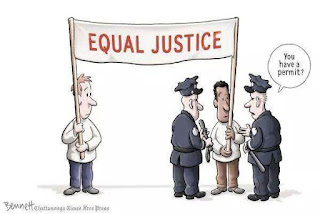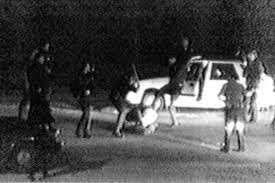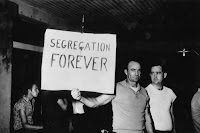From Passive Progressive to Active Ally
If you're reading this, and you've read the first post about Allyship, you may be wondering where to start and what, exactly, you are supposed to do. How do you take the leap from passive progressive to active ally?
My own journey began with a week-long conference: NCORE, The National Conference on Race and Ethnicity in American Higher Education. If you work in higher education in any capacity, fill out the forms and get your college to pay for your attendance at the next conference. Their tagline is "Start the Conversation." For me, it wasn't so much like starting a conversation as it was being thrust into the middle of a generations-long conversation, one which I had thought myself well versed in yet suddenly found I knew almost nothing.
I sat in many uncomfortable conversations in rooms where I was often the minority; where people of color in the audience were freely expressing their outrage, despair, and fear; and where the presenters were opening a topic as if with a can opener, forking open the aluminum lid and smacking at the bottom to get all the contents out. Never was there an easy end to the conversation. Never could I fall back on the platitudes so often present in white discussions of racial injustice: "Well, at least things are better now...thank God we live in the Bay Area...things are changing, though..." These neat little phrases which signal to the other white people that the conversation is now over and we can go back to being white and not having to worry about these things anymore. Never was this possible due to the nature of the conversations, the brilliance of the presenters, and the identities of the audience. Always, I left feeling, not better, but worse. Often with an uncomfortable rock in my stomach and a growing voice in my heart that told me to stay in that uncomfortability, not to run from it. Because I was realizing that the rest of the people could not leave the room and leave the conversation behind, I knew I could not either. Of course, for me it was a choice. For them it was not. At lunch break of day one, I observed how easily I got a seat at a table and was immediately presented with a menu while two Black women from the conference sat at the counter for 10 minutes without being acknowledged or given a menu. I'm writing this blog, but once I click "Publish," I can forget about all of this. This ability to decide whether we engage or disengage is, I believe, the ultimate white privilege.
So my own journey began with this week-long awakening, and then a slow unpacking of and acknowledgement of this new concept of white privilege. I find that it's a confusing term because white people often assume we are "getting something" that Black people aren't. While this is true, white people cannot initially see what we are getting until we understand what life is like for people of color; therefore, our first task is research.
If a conference is not readily available to you, not to worry. Black authors have been writing about this since they were first brought here in bondage. I read two books that I heard people at the conference reference the most: The New Jim Crow: Mass Incarceration in the Age of Colorblindness by Michelle Alexander and Between the World and Me by Ta-Nehisi Coates. These are both available in paper and audio versions. These books changed my perspective as much as the conference had. I began to always think of things through this new lens of understanding. The more we understand what life is like for people of color, the more we see how much our whiteness gives us. I think it extremely important that white people initially engage in this kind of research and personal work alone or with other white folks for reasons I will explain in the next post about White Tears.



I wish more people had the drive you do.
ReplyDeleteIt starts with one person, and you don't have to do everything. Writing this is easy for me, so I do it. You can do one thing that is easy for you too <3
ReplyDelete